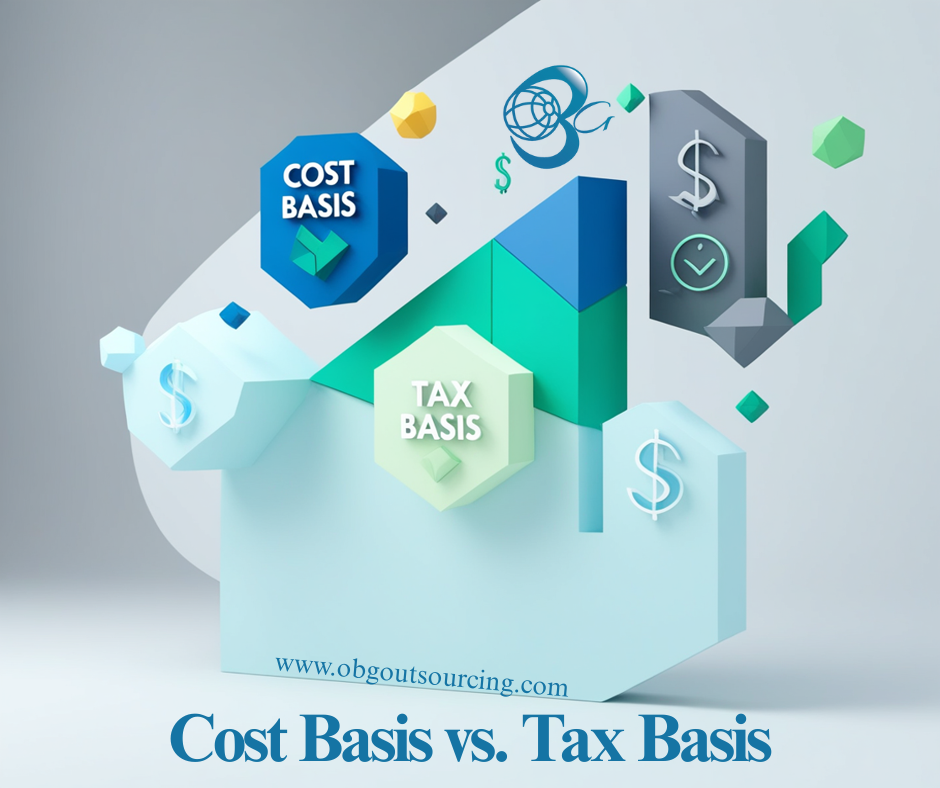What Is Cost Basis?
Cost basis refers to the original value or purchase price of an asset, including associated costs like brokerage fees and commissions. It's essential for determining capital gains or losses when the asset is sold. For instance, if you buy shares at $1,000 and sell them for $1,500, your capital gain is $500, which is subject to taxation.
What Is Tax Basis?
Tax basis is the value of an asset used for tax purposes, which may differ from the original cost due to adjustments like depreciation, amortization, or improvements. It's crucial for calculating taxable income, especially for assets held over time.
Key Differences Between Cost Basis and Tax Basis
Purpose: Cost basis is primarily used to determine capital gains or losses upon the sale of an asset. Tax basis is used to calculate depreciation and other tax-related deductions over the asset's life.?
Adjustments: Cost basis remains relatively static unless reinvestments or improvements occur. Tax basis can change annually due to depreciation, amortization, or other factors.?
Application: Cost basis is commonly used for investments like stocks and mutual funds. Tax basis is often applied to business assets and real estate.?
Considerations Before Implementing
Accurate Record-Keeping: Maintain detailed records of all asset purchases, improvements, and related expenses to ensure correct basis calculations.?
- Understanding Depreciation: For business assets, comprehend how depreciation affects tax basis and, consequently, taxable income.?
Consult Professionals: Engage with accounting professionals to navigate complex scenarios and ensure compliance with tax regulations.?
 USA
USA UK
UK Australia
Australia UAE
UAE Canada
Canada

_(7).jpg)
_(6).jpg)


_(5).jpg)
.jpg)
_(4).jpg)
_(1).jpg)
_(2).jpg)
.png)